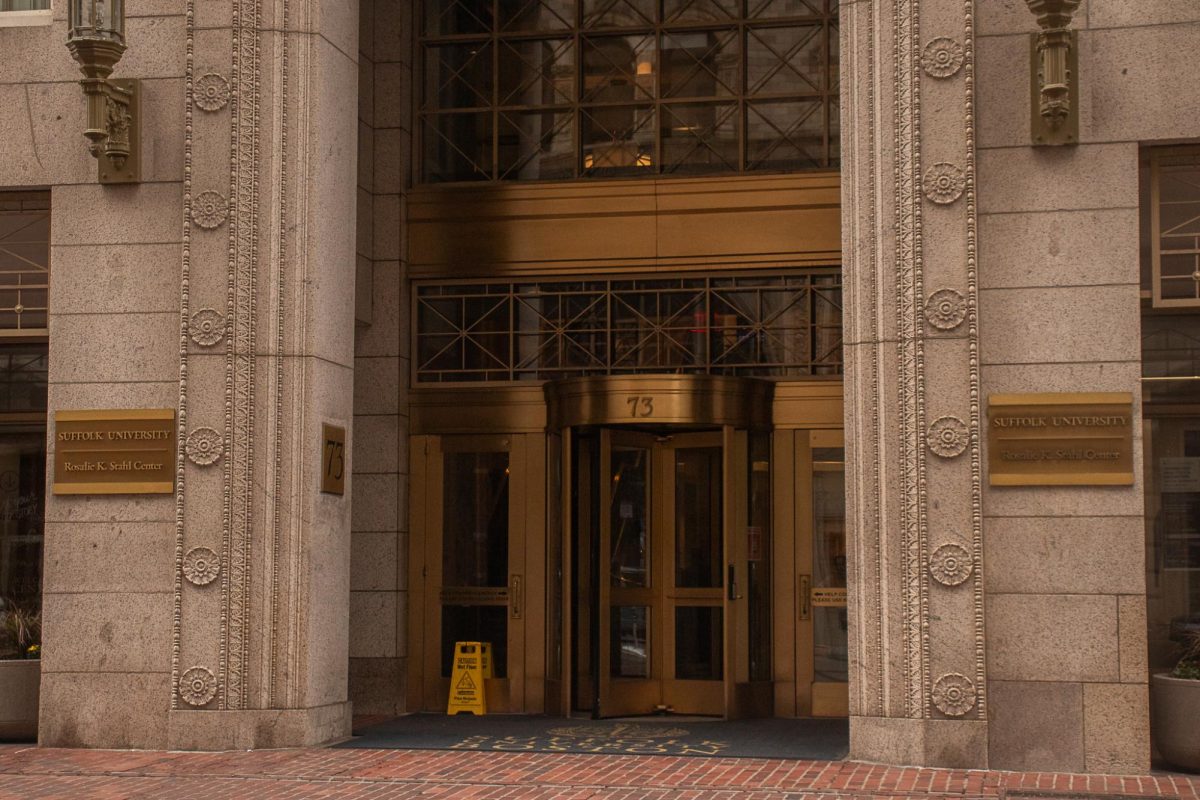Content warning: The following discusses topics including sexual assault and violence.
Here at Suffolk University, we are told all the time as students that, “the city is our campus.”
As a student, I would be lying if I said that I had not done everything in my power to capitalize on this. As a freshman and sophomore, I enjoyed the luxury of living in the heart of Boston in Suffolk University housing. I was able to get a job in the city at a local bar, and truly immerse myself into the city lifestyle.
When I became a junior, I received the incredible opportunity to intern at TD Garden as a control room intern. Thanks to the connections I have made in Suffolk’s own Studio 73, I have been on cable news networks, I had a work-study for the summer and got the internship opportunity of a lifetime. Last year, I was operating cameras for the jumbotron during Bruins and Celtics games, including the playoffs for both teams and the NBA Finals for the Celtics. I can not say enough positive things about the opportunities that I have been given as a student due to the university’s commitment to the “city is our campus” idea.
However, it seems as though Suffolk is blatantly ignoring one of the most important aspects of city living: student safety. As amazing as having a city campus is, it is not without its downsides, especially relating to student safety.
Since 2021, Suffolk University has reported six instances of rape, four instances of fondling, two instances of dating violence, one instance of stalking and one instance of burglary—all in dorms. Additionally, a student was robbed in broad daylight on Sept. 18, right in front of 73 Tremont.
While this may seem like small numbers in a vacuum, even one report is too much, and leaves one to wonder — how can students protect themselves on campus? Unfortunately, the answer is more complicated than it should be considering how dangerous the City of Boston can be.
As stated on the Suffolk University website, “Faculty, staff and students eighteen (18) years of age or older, or students under the age of eighteen (18) who possess a valid Firearms Identification (FID) card, may carry self-defense spray (also known as mace, oleo-capsicum spray or pepper spray) in any Suffolk University campus building EXCEPT Suffolk University residence halls. Any student or staff member who wishes to carry self-defense spray in a Suffolk University residence hall must first submit a Suffolk University – Self-Defense Spray Registration Form to the Suffolk University Police & Security Department and may be required to complete a Self-Defense Spray Familiarization course. Anyone who is required to possess a Firearms Identification card must make the FID card available to the Suffolk University police upon request.”
This policy is incredibly restrictive and unnecessary and must change. Students should be able to protect themselves from things like rape, fondling, dating violence, stalking, burglary and more without the university squandering our rights.
While it is important for an individual to be familiar with how to properly use self-defense sprays, it simply is not a legal requirement. By adding unnecessary red tape and hoops for students to jump through just to protect themselves, Suffolk University is putting students in danger.
In the state of Massachusetts, anybody above 18 years of age can have any self-defense spray without an FID card or any kind of permit, but for some reason, Suffolk University decided to completely ignore this policy for anybody living in a residence hall. Students at Suffolk should not have to check their rights to self-defense at the doors of the residence halls. As Massachusetts residents, we must demand that university policy is consistent with state law— there is simply no valid argument that can be made by the university that could justify limiting our rights to self-defense.
In instances where a student might find themselves in danger, they might be unable to call police or security to help them out. Pepper spray is a cheap, easy-to-use and quick solution for students. It makes no sense that in the areas most at risk for students, like the dorms, the university seems to have the strictest self-defense policies.
Suffolk University completely misses the mark on student safety by babying students and attaching unneeded requirements to rights that we are entitled to as Massachusetts residents. We are adults, not children, and we are entitled to protect ourselves as such.











T • Aug 2, 2025 at 1:21 pm
As the mother of a daughter attending Suffolk university, I completely agree with you!!Their safety needs to be the number one concern.